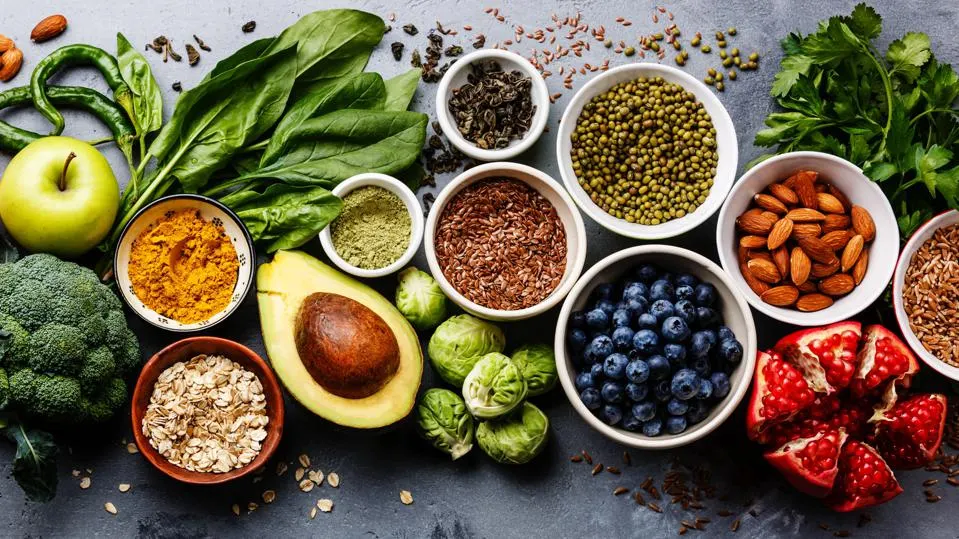As women age, managing weight becomes more challenging due to hormonal changes, slowed metabolism, and muscle loss. According to the Mayo Clinic, adopting a balanced approach that includes healthy eating, regular exercise, and mindful lifestyle changes is key to effective weight management for women over 50.
Table of Contents
As women age, particularly after 50, weight management can become more challenging due to factors like hormonal changes, a slower metabolism, and muscle loss. However, with the right strategies, it’s possible to manage your weight effectively and feel better in terms of health and energy. Here are some helpful tips for women over 50 looking to maintain a healthy weight.
1. Discover the problem
Hormonal Changes and Weight Management
Hormonal changes, particularly during and after menopause, can make weight management more challenging for women over 50. A decrease in estrogen levels can lead to an increase in belly fat and a reduction in muscle strength. These changes in body composition make it harder to maintain a healthy weight and can also contribute to weight gain. Understanding how hormones impact your body can help you take proactive steps to manage your weight more effectively.

Slower Metabolism and Weight Management
As we age, our metabolism naturally slows down, meaning the body burns fewer calories at rest. This change can lead to gradual weight gain if dietary habits and physical activity are not adjusted accordingly. To maintain a healthy weight, it’s important to focus on eating nutrient-dense foods and staying active, as these can help counteract the effects of a slower metabolism and support long-term weight management.
Loss of Muscle Mass and Weight Management
Muscle mass naturally decreases with age, and since muscle burns more calories than fat, this loss can significantly affect your metabolism and make weight management more difficult. Strength training exercises, such as weight lifting or bodyweight exercises, are crucial for women over 50 to preserve and build muscle. By incorporating strength training into your fitness routine, you can help maintain a higher metabolic rate, making it easier to manage your weight.
2. Changes in diet
Eat nutritious food
As metabolism naturally slows with age, particularly after 50, making mindful food choices becomes even more important for weight management. Consuming nutrient-dense foods helps ensure that your body gets the vitamins and minerals it needs while keeping calorie intake in check. A well-balanced diet should focus on whole, minimally processed foods such as fresh fruits, vegetables, whole grains, healthy fats, and lean proteins. These foods not only support overall health but also play a vital role in weight management by providing sustained energy without excess calories. Opting for nutrient-rich, lower-calorie foods can help maintain a healthy weight while ensuring that your body is properly nourished.
Pay attention to the portion size
As you age, your body’s calorie needs naturally decrease, making portion control an even more important aspect of weight management. Being mindful of the amount of food you eat is essential for maintaining a healthy weight. One effective strategy is using smaller plates, which can help you reduce your portion sizes without feeling deprived. Additionally, paying attention to hunger cues and avoiding second helpings can help you stay within your daily calorie limits, making it easier to manage your weight. By controlling portion sizes, you can enjoy a wide variety of foods while still supporting your weight management goals.

Eat More Fiber
Incorporating more fiber into your diet is a key strategy for weight management. Fiber-rich foods, such as vegetables, fruits, legumes, and whole grains, not only help you feel fuller for longer, but they also support your digestive system and overall health. Fiber helps control appetite by slowing digestion, reducing the likelihood of overeating. Additionally, a high-fiber diet is associated with a reduced risk of many chronic diseases, including heart disease and diabetes, making it an important part of both weight management and general wellness.
Drinking Water
Staying hydrated is crucial for overall health, and it can also play a role in weight management. Drinking water before meals can help control hunger, as it may lead to a feeling of fullness, preventing overeating. Often, people confuse thirst with hunger, which can lead to consuming extra calories when the body is actually just in need of hydration. By ensuring you’re drinking enough water throughout the day, you can help regulate your appetite and support your weight management efforts.
3. Reduce your intake of sugar and processed foods
Sugar-laden drinks and highly processed foods can contribute to weight gain and a variety of health issues, particularly as you age. These foods are often calorie-dense but lack essential nutrients, making it easy to consume excess calories without feeling satisfied. Reducing your intake of sugary and processed foods while replacing them with whole, nutrient-rich foods can help you manage your weight more effectively. By making healthier food choices, you can not only support your weight management goals but also improve your overall health.
Physical Activity
Regular physical activity is crucial for maintaining a healthy weight and supporting overall health. For women over 50, it’s recommended to engage in at least 150 minutes of moderate-intensity aerobic activity, such as brisk walking or cycling, or 75 minutes of vigorous-intensity activity, such as running, each week. Additionally, muscle-strengthening exercises should be done at least two days a week to promote muscle mass and support metabolism. Incorporating these activities into your routine can enhance weight management, improve cardiovascular health, and keep your body strong and energized.

Improve Strength Through Strength Training
Strength training is one of the most effective ways to combat the natural loss of muscle mass that occurs with age. Incorporating exercises like weight lifting, resistance band workouts, or bodyweight exercises into your fitness routine can help build and maintain muscle. Not only does this increase metabolism and help manage weight, but it also strengthens bones and supports overall body function. By focusing on strength training, you can improve your muscle mass, speed up your metabolism, and ensure your body stays strong as you age.
Incorporate Flexibility and Balance Exercises
Flexibility and balance exercises, such as yoga or tai chi, are invaluable for improving overall health, especially for women over 50. These exercises help maintain flexibility, prevent stiffness, and enhance mobility. They also reduce the risk of falls, which becomes increasingly important as we age. Regular practice of yoga or tai chi can enhance your balance, promote relaxation, and contribute to better mental and physical well-being, making them an essential part of a well-rounded weight management strategy.
4. Do something positive every day
In addition to your regular workouts, staying active throughout the day can significantly contribute to weight management. Simple activities such as walking, gardening, or taking the stairs instead of the elevator can burn extra calories, boost your metabolism, and support weight loss efforts. By incorporating these small, everyday movements into your routine, you’ll increase your calorie expenditure and enhance your overall health, making it easier to maintain a healthy weight.
Make Sleep a Priority
Getting enough quality sleep is crucial for both weight management and overall health. A lack of sleep disrupts the hormones that regulate hunger, often leading to increased cravings and overeating. Women over 50 should aim for 7 to 9 hours of sleep each night and establish a consistent sleep routine. Prioritizing rest not only helps control appetite but also promotes energy, reduces stress, and improves mental clarity, all of which support healthy weight management.

Manage Stress
Chronic stress can have a negative impact on weight, especially in the abdominal area. When you’re stressed, your body produces higher levels of cortisol, a hormone that can promote fat storage. To manage stress and support weight management, incorporate relaxation techniques such as mindfulness, meditation, and deep breathing exercises into your daily routine. These practices can help reduce stress levels, improve emotional well-being, and make it easier to maintain a healthy weight.
5. Have yourself checked regularly by your doctor
Regular checkups with your doctor are essential for monitoring your overall health, especially as you age. These visits provide an opportunity to address any underlying health conditions that may be affecting your weight or overall well-being. Health is not just about the number on the scale; it’s about feeling your best and ensuring that all aspects of your body are functioning well. Regular checkups can help you stay on top of any issues and maintain a healthier lifestyle. Celebrating small wins, whether it’s improving energy levels or feeling stronger, can help keep you motivated on your weight management journey.
Seek Professional Help for Weight Management
If managing your weight feels particularly challenging, seeking professional guidance can provide the support you need. A doctor, nutritionist, personal trainer, or even a chef can help you create a personalized weight management plan tailored to your specific needs. Professional help offers expert advice on nutrition, exercise, and lifestyle changes, helping you to overcome obstacles and stay on track. With the right support, you can develop a clear and achievable plan that helps you succeed in managing your weight and improving your overall health.
Conclusion
Women over 50 should change their diet, exercise regularly, change their lifestyle and seek help from friends and family to control their weight. By understanding the unique challenges they face at this time in their lives and implementing these strategies, women can achieve and maintain a healthy weight, improve their quality of life, and improve their overall health. Remember that achieving a better weight is a process and not a competition. Every step you take is a step towards a healthier future.
Disclaimer: The content in this article is based on my personal experiences and is intended for informational purposes only. I am not a doctor or medical professional. Always consult with a healthcare provider before making any changes to your exercise routine or lifestyle, especially if you have any health concerns or conditions.
My mission is to celebrate the wisdom, resilience, and vitality of women as they navigate menopause, embrace life’s transitions, and step confidently into the next phase. Whether you’re exploring ways to stay fit, looking for health tips to prevent common issues, seeking inspiration for a fulfilling lifestyle, or simply wanting guidance on diet, I’ve got you covered. Dive into our articles on fitness, health, lifestyle, nutrition and more to find the support and insights you need!





